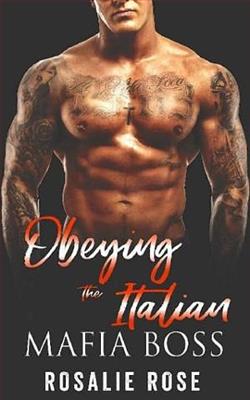Page 129 of These Summer Storms
She relaxed—this was a question she’d answered a thousand times. No loopholes, no tricks. “When I was thirteen, I did the after-school program at MoMA. It was a few blocks from my school, and it gave me something to do that didn’t involve following my family around. That, and it set me apart in some way. It was something that could be mine.”
“Isn’t there a Franklin and Elisabeth Storm wing at the Met?”
“Sure,” she said. “But Franklin and Elisabeth like tax write-offs and charity balls, not art.”
“There’s a Picasso on the wall of this very room,” he said.
They both looked at it, and Alice scrunched her nose. “I hate that painting so much. It was the first one my dad ever bought at auction. Did you know that? So he could show it off to his friends.” She scoffed. “Picasso.”
“You don’t like any Picasso?”
“Cultural appropriation, hypermasculinity, misogyny…what’s not to like?” He didn’t argue with her, which was nice in its own right. “My fatherlovedthat I hated it. He loved to mock me with it in public.This is my daughter, Alice. She’s an artist, but do yourself a favor and don’t ask her about Picasso.”
Jack gave a little laugh. “For what it’s worth, he never mentioned your loathing of Picasso to me.”
“Why would you like Picasso when Jacqueline Marval is right there? Goncharova? Kahlo? Gentileschi?”
“Is this my chance to impress you with my knowledge ofJudith Slaying Holofernes?”
She slid him a look. “My personal history suggests I shouldn’t be impressed, but I confess, I am.”
“Don’t be,” he said. “I had to look it up.”
Somehow, that made it better, that he’d listened to her story and been interested enough to learn more. For her. “I like a man with a working knowledge of the Internet.”
They shared a little private smile, one that set off a tiny explosion of pleasure deep inside her. Alice looked to the painting on the wall and made her decision, doing her best to ignore the way his touch lingered as she rose from his lap, following her until she was too far away. She had something to do.
“If he bought it, it can hang on the damn wall as intended.” Lifting her painting, she walked it to the fireplace, leaning it against the edge of the hearth before reaching for the Picasso already there.
“Wait—” Jack said, the words coming urgently, like he hadn’t expected this. To be fair, very few people would have expected her to yank a master down. “Let me—”
“No,” she said. “I got it.”
And with that, she heaved the painting off the wall and lowered it to the ground (he did help, it was a Picasso after all) before lifting her own painting and hanging it in the empty space. It was done in such a seamless, fluid way, without even an ounce of concern that she might not find the hooks—as though the hooks wouldn’t dare defy a woman so hot about patriarchy, artistic or literal.
And they didn’t.
She stepped back and looked at her handiwork, hands on her hips, and Jack joined her. With a renewed sense of confidence, she spoke to her painting. “Were you there?” A beat. “At the gallery? Did you come with my father’s checkbook?”
“No.” The answer was quick and honest, and Alice appreciated that he wasn’t offended by the question (he’d bought her fiancé, after all),and still, she did not deny the relief that coursed through her at the categorical denial. And what came next. “But I wish I had been.”
The words summoned the worst kind of memory—one that had never happened. Jack at that opening, not at a distance, not mysterious. But by her side. Celebrating her. Happy to be there. Her cheeks went hot at the thought, and she dipped her head. “That would have been nice.”
He took her hand in response, leading her back to the couch, where they resumed their position.
Pressing against his thigh, she returned her attention to the ink on his arm. “While this was all a very good ploy to get me to stop asking about your tattoo, you forget that I was raised by the man who trained you in the art of deflection.”
“Excuse me, but I was a pro at deflection long before your father hired me.”
“A dream employee,” she quipped, tapping the compass. “Did you put it here, on your forearm, so all the ladies would swoon when you rolled up your sleeves?”
“I’ve heard that about sleeve-rolling.” His fingers slid a little higher than they had before, along the inside of her thigh. “It’s not a new story. I got it after my father died.”
It wasn’t a surprise—he’d told her that afternoon. “You said he was sick.”
“He was,” he said.
“Your mother?”















